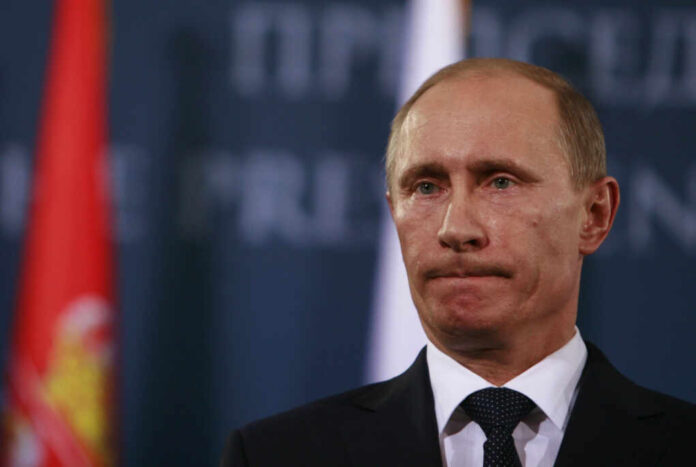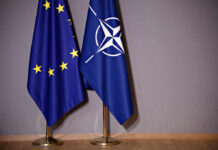
Russian President Vladimir Putin has taken to painting Russia as a key player in the ongoing Middle East crisis, particularly with regard to the conflict between Israel and Palestine. Calls have been pouring in from regional leaders who are concerned about any nation that may contribute to escalating the violence in the Middle East right now.
Russian President Vladimir Putin told Israeli Prime Minister Benjamin Netanyahu on Monday that Moscow wanted to help prevent a humanitarian disaster in Gaza as he waded into the Middle East crisis with a flurry of calls to key regional players. https://t.co/Z7VdRYUxYS
— NEWSMAX (@NEWSMAX) October 17, 2023
Putin has made it his mission to position Russia as a voice for peace and restraint, but not everyone is on board with that message.
In a phone call with Israeli Prime Minister Benjamin Netanyahu, Putin shared his goal is working toward “ending the Palestinian-Israel confrontation and achieving a peaceful settlement through political and diplomatic means.”
Is that possible? Many Americans don’t seem to think so.
Israelis are shouting "death to the Arabs", Arabs are shouting "death to Israel". So much animosity and hatred and no side seems to be showing restraint. Its terrible.
— Emeka Nwachukwu (@emeka4nwagod) October 9, 2023
Others argue the only way out is via re-electing former President Donald Trump.
Trump did the impossible and brought peace to the Middle East.
— Fox Knight (@FOX__KNIGHT) September 25, 2022
The Kremlin relayed details of the call, which did not reveal any mention of the ceasefire resolution in the United Nations Security Council. Still, Putin commented on the need for a humanitarian truce, as well as immediate aid for those in need. So far, it looks like Putin wants to prevent a humanitarian catastrophe in Gaza.
To address the Middle East crisis comprehensively, Putin told Netanyahu he had already engaged with leaders of Syria, Egypt, Iran, and the Palestinian Authority.
From those conversations, a joint opinion evolved that an “early ceasefire and the establishment of a humanitarian truce in order to urgently provide assistance to all those in need” was highly necessary.
Additionally, Putin sought assistance from the Egyptian President Abdel Fattah al-Sisi in evacuating Russian citizens from Gaza. By engaging with key regional players, Putin aims to establish alliances and facilitate productive talks to achieve a peaceful settlement.
Putin also shared his concern with other leaders that this conflict could spiral out of control and into other nations — emphasizing the importance of preventing any form of violence against citizens. He also offered condolences to Netanyahu over the deaths of more than 1,300 Israelis in attacks by Hamas.
Putin has made it clear that Israel has every right to defend itself, but he feels a ground invasion would be taking things too far and could run the risk of sparking more regional conflict.
Many Americans are concerned that the Middle East crisis will now distract both government and civilians from the matter at hand in Ukraine — with the majority of US citizens feeling strongly that we should pull out of all efforts to fund the Ukraine war any further.
It makes me wonder. Who supplied the weapons? Iran and Russia under the condition that they use them? It would be a distraction from Putin's brutal assault on Ukraine. I don't think Xi Jinping is unhappy. What about trump's pals in Saudi Arabia? Our GOP are delighted. pic.twitter.com/VsUopDS3iM
— The Cat came back (@lobosgatos) October 8, 2023
That must include defeating Putin's Russia, reparations for Ukraine & returning kidnapped Ukrainian children.
Does everyone realise that Putin used Hamas to provoke Israel as an excuse and distraction from being defeated by Ukraine? pic.twitter.com/Mge0d31J9L— Annette Schneider For Climate Action (@trainspeedhump) October 8, 2023
Is Putin pandering to potential allies in the Middle East now as a means of shoring up for further conflict with Ukraine? Is he trying to paint himself in a different light — one of immense restraint and peace?
By taking an active role in the Middle East, he aims to demonstrate Russia’s capability to handle complex international conflicts and redirect the narrative away from its involvement in Ukraine.
Russia has consistently highlighted prior U.S. policy failures as contributing factors to the recent escalation of violence in the Middle East.
This critique allows Putin to assert Russia’s position as a counterbalance to perceived U.S. hegemony and promote its alternative approach to conflict resolution. Is Putin merely framing the crisis in this manner to position Russia as a global force for stability?
Thus, while Russia’s involvement in mediating the Israeli-Palestinian crisis may be seen as a positive step toward peace, some critics view it cynically. Many critics are claiming Russia is exploiting the Israeli-Palestinian crisis to funnel attention away from its own actions in Ukraine while strengthening its ties with Islamic radicals.
Russia is clear winner of war in Middle East. Putin assumes this will divert Western attention and weapons away from Ukraine. Russia and Iran fully united in purpose by igniting the Middle East hoping to draw US into conflict: senior Middle East intelligence source tells me. https://t.co/Cxvc35lB12
— Jennifer Griffin (@JenGriffinFNC) October 9, 2023
Other critics have suggested that Russia’s role as a mediator is merely a tactic to exert influence and leverage over the region, rather than a genuine commitment to resolving conflict.
Nevertheless, the war wages on in Israel and Gaza, as well as in Ukraine. Americans would do well to educate themselves on the history of these Middle Eastern nations, and the history of Russian political game playing that could be deployed in the midst of this crisis.


















